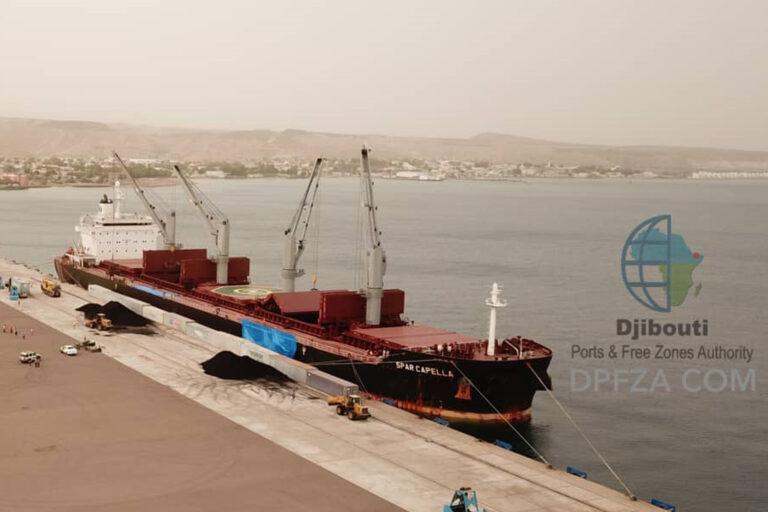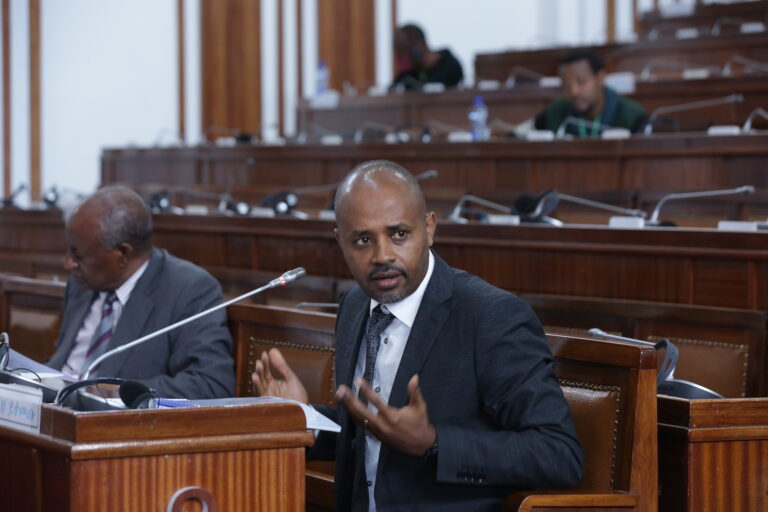Ras Al Khaimah Economic Zone (RAKEZ) will be opening its sales offices in Ras Al Khaimah, Dubai and Abu Dhabi on Monday 3 August 2020, welcoming investors seeking consultations on business set-up in the UAE.
As RAKEZ carefully re-opens its doors to new investors, it has taken a series of precautionary measures to ensure the health and safety of its visitors, employees and the whole community. Investors visiting RAKEZ for consultation will meet their business set-up consultants in designated open spaces while maintaining safe physical distancing. In addition, the authority has made several enhancements in the business set-up processes by eliminating the requirement of passing on original and printed documents. Investors can walk in to any of RAKEZ sales offices in Ras Al Khaimah, Dubai and Abu Dhabi, to consult with the RAKEZ team before proceeding to RAKEZ Portal 360 to submit all requirements, sign their documents, and completing the payment transactions in a safe and secure platform.
RAKEZ re-opens its doors for business set-up consultations
IATA urging African governments to unblock bottlenecks
As a consequence of the pandemic and associated restrictions, African airlines are forecast to lose USD 2 billion in 2020. Without urgent financial relief, the industry is at risk of collapse, putting about 3.3 million jobs and USD 33 billion in African GPD in jeopardy.
To date, the governments of Sub-Saharan Africa Rwanda, Senegal, Côte D’Ivoire and Burkina Faso have pledged a total of USD 311 million in direct financial support to air transport. A further USD 30 billion has been promised by some governments, international finance bodies and other institutions including the African Development Bank, African Export Import Bank, African Union and the International Monetary Fund (IMF) for air transport and tourism. However, much of the relief is yet to reach those in need due to institutional bureaucracy, complex application and creditworthiness processes, as well as cumbersome conditions to secure finance.
“Over USD 30 billion in financial support has been pledged to aviation and tourism in Africa. Some of this money has been allocated by governments, but far too little of it has reached its intended recipients. Governments and lenders need to urgently unchoke the bottlenecks so that the money can flow quickly, otherwise it will be too late to prevent closures and job losses. There will be no point re-opening the borders and skies if there is no industry left to speak of that is capable of supporting trade and tourism, which are the key components of any thriving economy,” said Muhammad Albakri, IATA’s Regional Vice President for Africa and the Middle East.
Ethiopia starts using Port of Tadjourah
Ethiopian Shipping and Logistics Services Enterprise (ESLSE) announced that it started using Djibouti’s Port of Tadjourah, which received the first vessel on July 17 with Ethiopian cargo.
Roba Megersa, CEO of ESLSE, told Capital that the port, which was idle for years, has now started giving service for Ethiopian cargo.
He said that the vessel with cargo of coal arrived on July 17 and is transported to Ethiopia.
Initially the port has been developed in the aim to transport mainly potash from Ethiopia’s Afar region, while the mining is not yet developed. Besides that the port has a potential to provide for northern Ethiopia.
Roba said that the road from Tadjoura to Balho, a border town, is high standard that is also preferred by drivers. The road that is 120 km and consumed USD 156 million was inaugurated late last year.
The coal imported for cement factories is 50,000 metric tons and is transported by Spar Capella vessel, which is sailing under the flag of Norway, from South Africa.
Compared with the traditional route from ports in Djibouti via Galaffi, the current road from Tadjoura to Balho is high quality and shortens the driving hour significantly, according to the CEO.
“The major share of the 120km road from Djibouti to Galafi is damaged, which forced drivers to drive up to 8 hours to cross the border, while this side may take only two hours,” he added.
Trucks that crossed the border will come at the center via Dechato town of Afar region.
He said that other vessels will also use the port in the coming period as an alternative. “It is a good alternative when ports surrounded Djibouti as the main town is crowded,” he said.
“Ethiopian vessels will use Tadjoura Port since they are equipped with gear, which is a support to unload cargos from vessels, and don’t need crane at the port,” he explained.
Roba said that on a daily basis up to 4,000 tons of cargo can be unloaded, which is very big for the new port and even high compared with the performance in other Djibouti ports.
“For instance on Friday July 24, 2,000 tons of cargo was unloaded and transported by 50 trucks, while in the past days 100 trucks that carried 4,000 tons of coal has been transported,” he said.
Spar Capella is a bulk carrier that was built in 2011 and is sailing under the flag of Norway. Its carrying capacity is 58,000 tones DWT.
The Tadjoura Port, which consumed USD 90 million, has been built to mainly focus on general cargo, such as potash and has a depth of 12 meters with 2 berths of 435m length. This facility is well positioned to serve hinterland and could accommodate vessel of up to 80,000 DWT.
The Tadjourah-Balho road financed by the Kuwait Fund for Arab Economic Development is the third road corridor besides Djibouti-Galafi-Dicheto and Djibouti-Dewalle-Dire Dawa connecting Ethiopia.
In related development Djibouti Shipping Company, formed under Djibouti Ports and Free Zones Authority (DPFZA), has received its first vessel a week ago.
Djibouti Shipping Company’s first ship (African Sun) arrived at Djibouti on 19 July and is set to target to reduce transit time for merchandise travelling from different route.
The ship that targets to bolster regional trade arrived from the Port of Mersin, Turkey and will make regular journeys to Mogadishu, via Djibouti, Berbera and Bossaso. Africa Sun has a capacity of 1,108 twenty foot equivalent units (TEUs).
According to the statement from DPFZA, in addition to import-export traffic, Djibouti Shipping Company will also offer redistribution services for transshipment containers in Djibouti, by major shipping lines and intended for ports in the region.
“Africa Sun is the first step in a major national project to become a key player in the shipping industry,” DPFZA said in its statment.
Gov’t to double indirect tax collection
The government targets to double the current fiscal year domestic indirect tax collection from the performance registered in the just ended fiscal year.
Recently Eyob Tekalign, State Minister of Finance (MoF) told Revenue, Budget and Finance Standing Committee that for the year the government targeted to expand its revenue from indirect taxes that are mainly value added tax (vat), excise tax and others.
Members of the standing committee raised their concern that due to the COVID 19 pandemic the economy will be affected, which also influences the tax collection operation.
In his response Eyob explained that the government has considered the effect of the pandemic but it has mainly focused on indirect taxes than direct tax, which is mainly corporate or income tax.
“We will work strongly to expand the tax collection from indirect sources and reforms in the area are being done,” he explained.
For the last few years the country was working to expand the tax base and on regulatory and enforcement areas to boost the tax collection, which is very low even compared with peers in Sub Sahara countries.
In the last budget year MoF has also revised the excise tax proclamation that is expected to enlarge the revenue from this tax sector. The amended proclamation also gives a right for the government to revise the percentage every two years, which is a usual trend in other countries like neighboring Kenya.
From domestic indirect tax the collection will be about 85 billion birr that is ambitious compared with the performance for the 2019/20 fiscal year. In the last fiscal year the revenue from indirect tax the government estimated it was close to 41 billion birr, while the projection was to get almost 71 billion birr.
From local domestic commodity VAT, the government has targeted to earn 30.5 billion birr that is 27 percent higher than last fiscal year projection. Domestic commodity VAT expected revenue for the year is also 61 percent higher than the actual performance for the 2019/20 fiscal year, which was 19 billion birr.
The expected service VAT for the year is 39 billion birr with 10 percent increment compared with 2019/20 fiscal year and 118.6 percent compared with real achievement. In the last fiscal year the government projected to earn 35.5 billion birr from service VAT but the performance was close to 18 billion birr.
The import commodity VAT for the year was set to be 37.7 billion birr and the actual performance was 34 billion birr.
For the year the government has targeted to earn 107 billion birr from all VAT sources. In the past year 96.7 billion birr was expected, while the actual performance is estimated to be about 71 billion birr.
According to last year projection from domestic commodities excise tax collection, the government was expected to secure 10.4 billion birr, while the real performance was 3.3 billion birr.
For this year the commodity excise tax collection is expected to be 13.7 billion birr that is 31 percent higher than the past year and 313.4 percent compared with the performance that was 3.3 billion birr.
The import commodity excise tax revenue has also set to be 14 billion birr with 30.4 percent increment from the expected earnings for the 2019/20 budget year. In the 2019/20 fiscal year the project from import commodities excise tax was 11.4 billion birr, while the earning was close to 11 billion birr.
For the current fiscal year the government has targeted to collect close to 28 billion birr from all excise tax sources.
In the past year close to 22 billion birr was expected from excise tax, while the result was 14 billion birr.
According to the budget document of MoF, the revenue from customs duty collection is expected to increase significantly. According to the projection for the year the government targeted to get 45 billion birr.
From the direct tax the government has expected to earn close to 66 billion birr, which has reduced by 9 percent compared with the 2019/20 fiscal year target.




